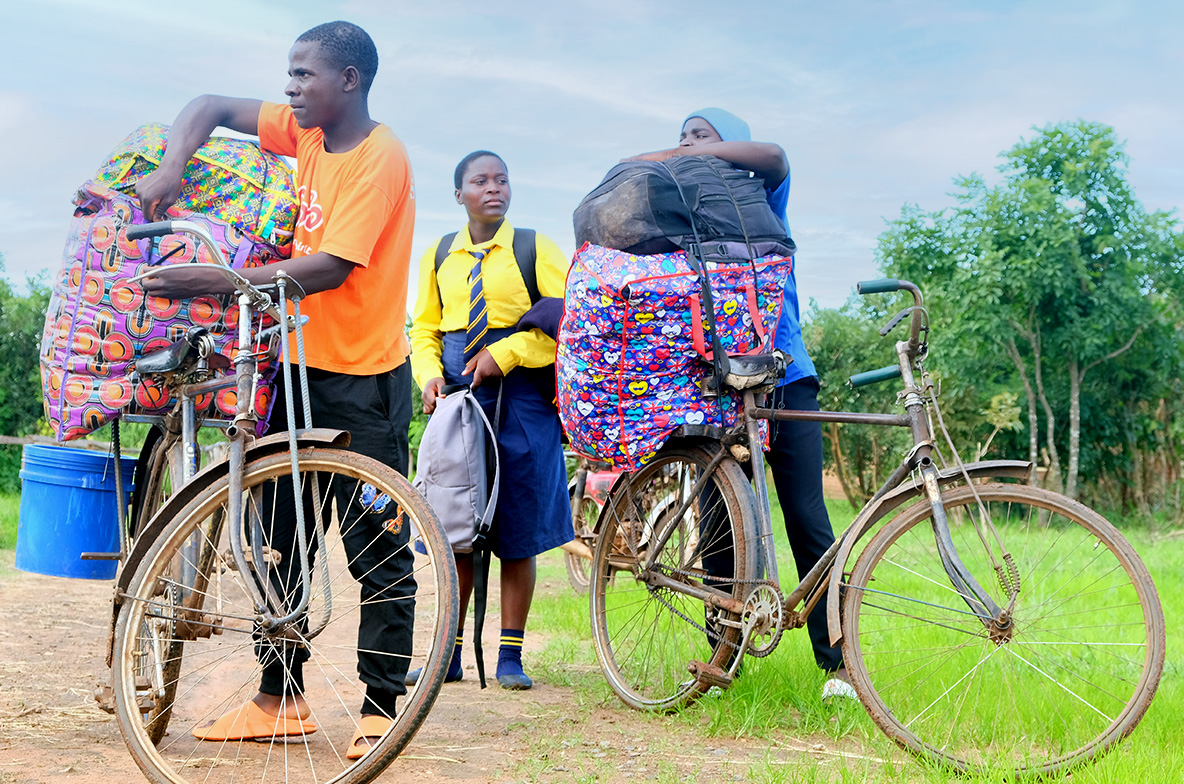The New Year should signify the students’ fresh start and the beginning of Term Two. Malawi, however, is suffering one of the worst Cholera outbreaks in decades.
Malawi government closed schools temporarily.

Before schools opened in January, the Government of Malawi cancelled classes for two weeks and notified that schools could reopen on January 17. Almost 70% of the students returned on the first day, demonstrating how much the girls missed their classes.
Cholera is an acute diarrheal infection caused by ingesting food or water contaminated by bacteria. Therefore, providing safe water and sanitation is critical to prevent and control the transmission of Cholera.
Source: www.who.int/news-room/fact-sheets/detail/cholera
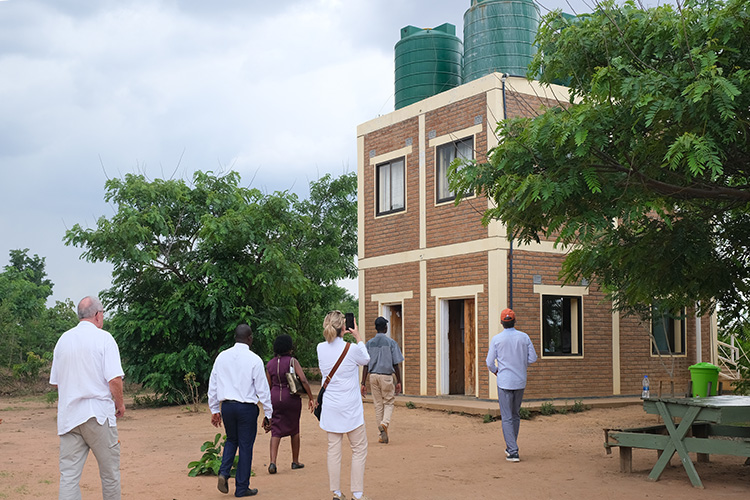
Kuwala has built and maintained a substantial septic system to safely and adequately provide sanitation for the school. The water tower provides sufficient drinking water. The students have consistent and ongoing learning and practice of proper hygiene, proper cleaning and maintenance of their environment and facilities. Upon returning to opening day, the new Nurse at Kuwala organized a brief meeting for all students and workers to instruct on the facts surrounding Cholera and its treatment and prevention.
On the announcement of the school closures at the beginning of January, the Kuwala Administration jumped into action and set up remote learning for the students at home in their villages. E-lesson material was developed and made available on WhatsApp. Students were encouraged to keep up with their studies. Considering so many students and the class delay, Kuwala organized an evaluation session upon returning to school. Most of the parents attended and encouraged their daughters to work hard and improve their performance at school. The evaluation day’s attendance shows how much the parents value their daughter’s education.
Organizational training for staff
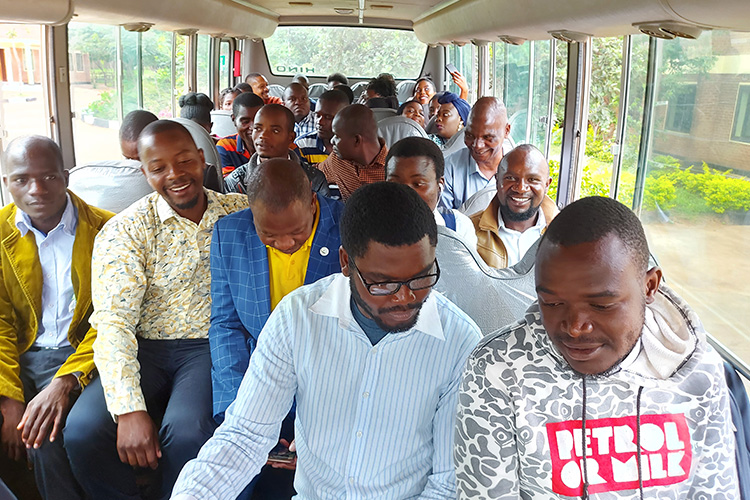
The Kuwala Administration, staff and teachers attended a workshop in January, partnering with two other private schools. The main topic was Organizational Culture and included training to create a positive culture within the organization, sharing and learning ideas across all departments, being accountable to each other and working collaboratively. Team building and fun activities provided the opportunity to get to know each other and develop trust and a strong working relationship. The event-oriented the staff on how they must relate to one another at the workplace, behave identically, and execute their duties in line with the organization’s goals, aim and vision statements. The group also had fun learning about business dressing, table manners and etiquette. In addition, the lessons of punctuality, taking instruction and having a hardworking spirit were well presented.
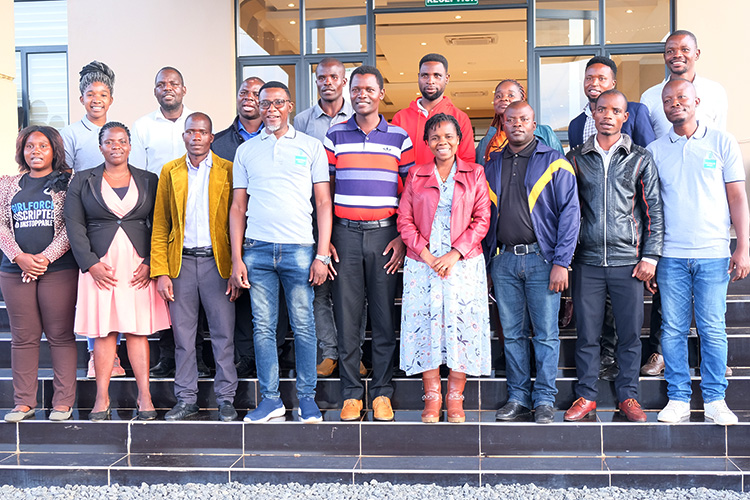
Teaching in such impoverished conditions takes work in such a remote environment. Retaining good teachers and staff has always been a priority for Kuwala, so building housing for staff to live on campus is essential. The Staff are ready with the new term in January and with the new year comes opportunities for learning for all the students. The Canadian board thinks a healthy balance of academics, sports, and the arts benefit our students’ human spirit and mental health.
The arts super charge the mind
Introducing knitting and sewing to the students will supplement the academic curriculum.
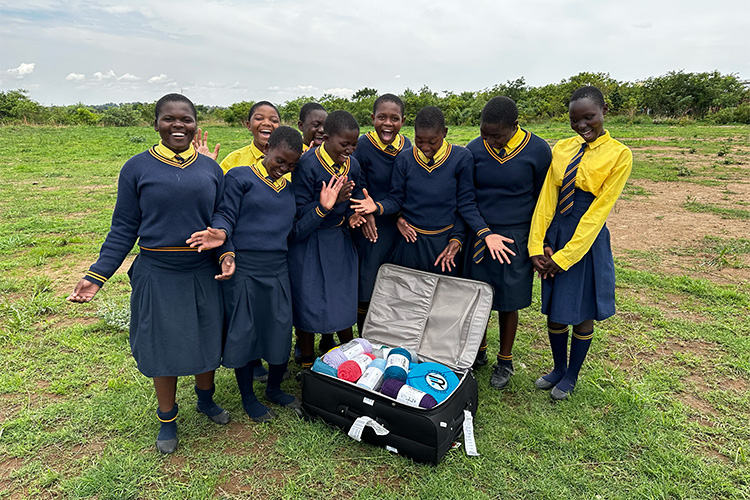
These two past-time activities will provide skills we may not usually think are beneficial. Knitting and sewing require the learning of patience, precision and accuracy, providing an opportunity to relax their minds. The Kuwala board will explore the arts’ full potential in 2023. The girls continue to focus on academics, but we want to expose them to the arts, so we maintain creativity as an essential skill. Africa is rich in song, poetry, dance, arts, and sculpture, which we want to celebrate at the school.
Rain, rain, rain, it’s a washout
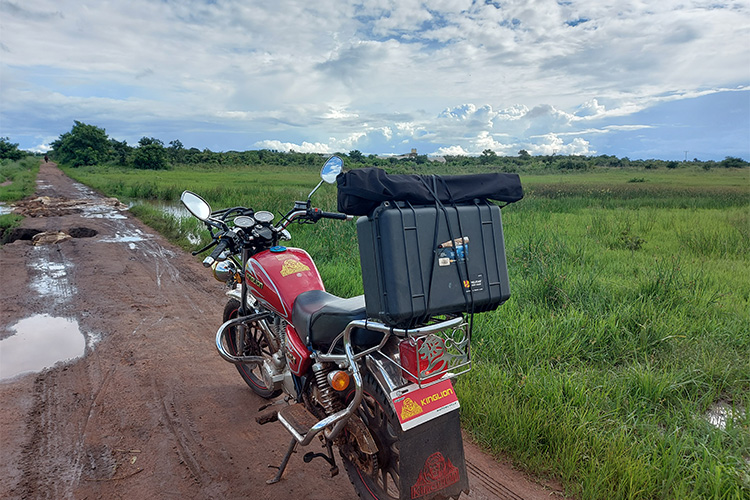
The road to Kuwala is an adventure of rain, mud, and holes! Weather in Malawi during the rainy season can be unpredictable. Kuwala has been preparing for the rainy season as rains frequently can be heavy and last several days. The torrential downpours almost entirely washed away the road to Kuwala, making it difficult for families to transport their daughters to school. Maize, beans and ground nuts are growing; however, the heavy rains washed away a large area of the farmland crop. Kuwala has built terraces and sandbagging around the perimeter of the road and the farmland to reduce the runoff. Elephant grass and trees are planted around the farm’s perimeter to strengthen the terrace. A terrace is a flattened buildup that allows a diversion pathway for excess water to flow away or around an area. The students are all participating in planting and caring for the crops to learn, respect and appreciate farming practices.
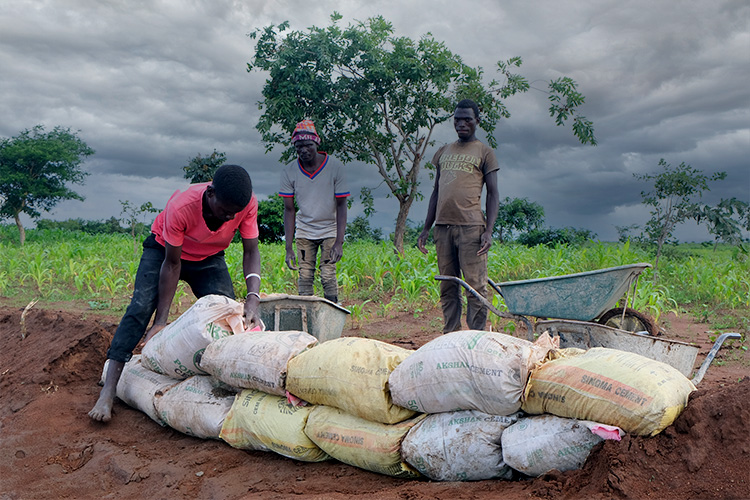
Workers are taking measures to reduce the rain runoff on the newly purchased farm land. Planting of trees and elephant grass is one strategy to strengthen the terrace on the farm where maize is grown. Despite these measures, some of the planted crops were washed away by runoff. Typical rain fall is approximately 456mm and 24 rain days in January.
Look for your posts on social media and give what you can. Visit Kuwala and click on the donate button or go directly to CanadaHelps to donate.
https://www.canadahelps.org/en/dn/41042?v1=true
New and on-going projects for 2023
Campus construction projects continue, and the progress is impressive. Duplex 1 and 2 are over 80% complete—the maize grinding building with the installation of security doors. As of the end of 2022, Classroom Block #2 is now fully utilized.
Here is where we are putting our focus in 2023:
• install the science lab, 53K, partly funded;
• biogas, $15K committed;
• staff (third) duplex, $60K;
• mini-bus, $25K, we need to match this donation;
• sustainable farm startup, $33.6K;
• connect to Starlink, $1.8K/yr; and
• expand the Computer Science program.
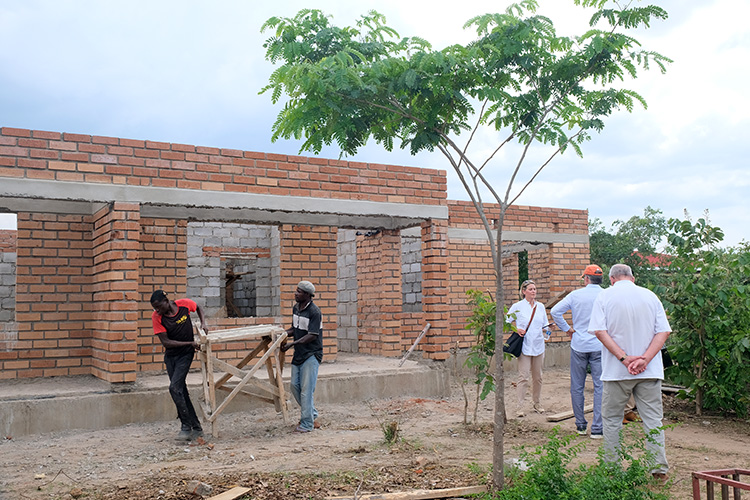
Canadian delegation touring the construction of the staff duplex house. Kuwala_2022.
Be sure to visit the Kuwala website for more stories about what’s happening. A new print version design for the 2023 newsletters can be found on our website under Stories/newsletters. Or download the PDF with the link provided below the image.
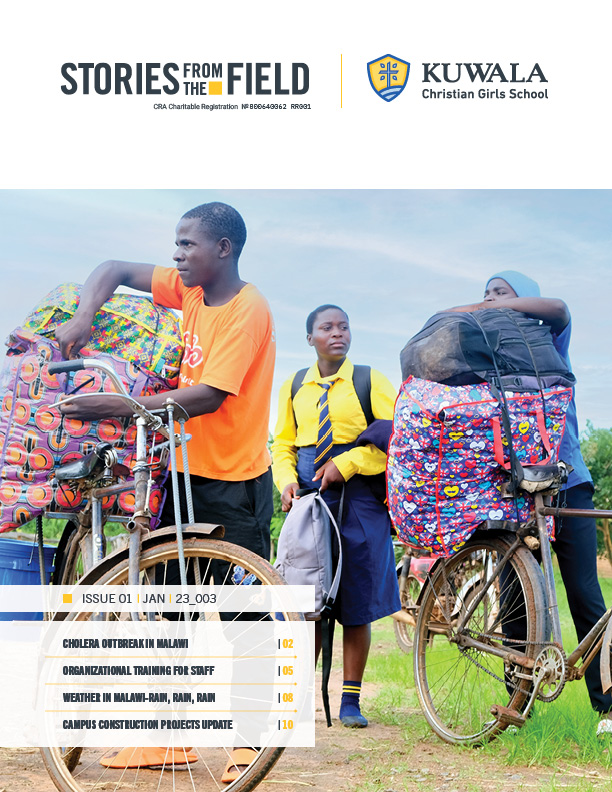
https://www.kuwala.org/wp-content/uploads/2023/01/01_Kuwala_Newsletter_Jan_23.pdf
